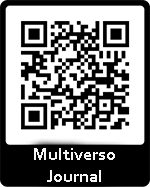The contemporary debate on the discourse of human dignity in the philosophical thought of Jürgen Habermas, Ernesto Garzón Valdés and Ronald Dworkin
DOI:
https://doi.org/10.46502/issn.2792-3681/2025.8.13Keywords:
human dignity, philosophical thought, Jürgen Habermas, Ernesto Garzón Valdés, Ronald DworkinAbstract
In general, human dignity is conceived as the intrinsic and absolute value of the human being, constituting the foundation of human rights and the basis of peaceful coexistence. As can be expected, this concept has evolved historically, distinguishing the contemporary model of human dignity from previous traditional models. Through documentary hermeneutics, the aim of this reflection was to analyze the contemporary debate on dignity in the philosophical thought of Habermas, Garzón Valdés and Dworkin, exploring their convergences and divergences. In this context, questions arose, such as: To what extent do Habermas' communicative conceptions of human dignity overcome the limitations of Kantian formalism by situating it in an intersubjective framework? How does Garzón Valdés resolve the tension between the absolute character he attributes to the principle of dignity and the moral dilemmas that emerge in extreme situations? And how does the articulation proposed by Dworkin between dignity, personal autonomy and human rights offer answers to the challenges of contemporary plural societies? On a personal note, it is concluded that the philosophical dialogue points out fertile paths to face contemporary bioethical and political challenges, where dignity remains an inescapable ethical beacon for all rational action.
References
Dworkin, R. (2010). Keynote address. Justice for Hedgehogs. Boston University Law Review, 90, 469-477.
Garzón Valdés, E. (2003). Lo íntimo, lo privado y lo público. Revista Claves de Razón Práctica, (137), 1-50. https://acortar.link/xhuUKX
Garzón Valdés, E. (2006). ¿Cuál es la relevancia moral de la dignidad humana? México DF: Fontamara.
Habermas, J. (1998). Facticidad y validez sobre el derecho y el estado democrático de derecho en términos de teoría del discurso. Barcelona: Trotta.
Habermas, J. (1999). teoría de la acción comunicativa I. Madrid: Taurus.
Habermas, J. (2012). El concepto de dignidad humana y la utopía realista de los derechos humanos. Diánoia, 55(64), 03-25.
Kant, E. (2005). Crítica de la razón pura (prologo y traducción Pedro Rivas). Barcelona: Taurus Pensamiento.
Martín Blanco, S. (2012). Reflexiones morales sobre los animales en la filosofía de Martha Nussbaum. Revista de Bioética y Derecho, (25), 59-72. https://scielo.isciii.es/pdf/bioetica/n25/bioetica_animal.pdf
Pele, A. (2015). La dignidad humana: modelo contemporáneo y modelos tradicionales. Revista Brasileira de Direito, 11(2), 7-17. DOI: 10.18256/2238-0604/revistadedireito.v11n2p7-17
Pérez Triviño, J. L. (2007). La relevancia de la dignidad humana. Un comentario. DOXA, Cuadernos de Filosofía del Derecho, (30), 159-163. https://acortar.link/1awdqU
Vargas del Carpio, A.M. (2016). La concepción “unitaria” del Derecho y la dignidad en Dworkin. Presentado en Duodécima Jornadas Internacionales de Derecho Natural: Ley Natural y Dignidad Humana. Universidad Católica Argentina. Facultad de Derecho. https://repositorio.uca.edu.ar/bitstream/123456789/3052/1/concepcion-unitaria-derecho-dignidad-vargas.pdf
Published
How to Cite
Issue
Section
License
Copyright (c) 2025 Mercy Gregoria Bracho

This work is licensed under a Creative Commons Attribution 4.0 International License.
The authors who publish in this journal agree to the following terms:
The authors retain copyright and guarantee the journal the right to be the first publication where the article is presented, which is published under a Creative Commons Attribution License, which allows others to share the work prior to acknowledgment of the authorship of the article. work and initial publication in this journal.
Authors may separately enter into additional agreements for non-exclusive distribution of the version of the work published in the journal (for example, placing it in an institutional repository or publishing it in a book), with an acknowledgment of its initial publication in this journal.



















